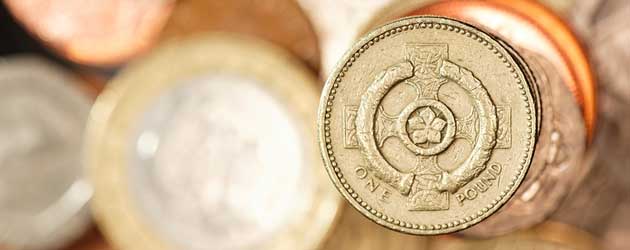
The Pound was subject to a modest correction across the board last night as reports surfaced suggesting that Bank of England Governor Mark Carney is to scrap the 7.0% Unemployment threshold section of his flagship forward guidance policy.
Carney signalled that recent improvements in the UK economy mean that interest rates no longer need to be linked to the headline Unemployment Rate. The BoE man said that he will not be “unnecessarily focussing on one indicator” in future, but instead will be monitoring the performance of the British labour market as a whole.
Whereas the Bank’s primary objective in August, when Carney rolled out the forward guidance policy, was to help foster an economy recovery and avoid further contraction by guaranteeing cheap credit to businesses and consumers, the Governor indicated that his future focus could be to raise rates in order to sustain the recent advent of rapid domestic growth.
However, Carney was quick to mention that he has no intention of raising interest rates “immediately”, echoing comments from his colleague at the BoE Paul Fisher, who commented earlier in the day that the nascent recovery in Britain needs to prove it is sustainable before the Bank would be persuaded to act with a rate hike.
In response to Carney’s comments Sterling fell by around -0.2 cents against the US Dollar, -0.1 cents against the Euro, -0.7 cents against the Canadian Dollar, -0.1 cents against the Australian Dollar and -0.3 cents against the New Zealand Dollar.
Seeing as British economic data has printed above forecasts fairly consistently over the past six months it seems that markets remain unconvinced by the BoE’s attempts to dampen rate hike speculation.
If it’s a question of whether to believe the BoE, or not to believe the BoE, investors appear to be favouring the latter.
Earlier in the day yesterday, the Pound struck a fresh 2.5-year high against the US Dollar, a fresh 4-year high against the Canadian Dollar and a new 4.5-year high against the Australian Dollar.
The main event to look out for on today’s economic schedule is this afternoon’s Canadian Consumer Price Index report. Bank of Canada Governor Stephen Poloz has repeatedly shown concern towards Canada’s soft inflationary outlook, which has led to intense speculation that the BoC could introduce a rate cut at some point in the near future.
However, the CPI barometer of inflation is predicted to have risen from 0.9% to 1.4% during December. If the report prints inline with economists’ expectations then it is possible that downward pressure on the ‘Loonie’ could slacken. On the other hand, a weaker-than-anticipated reading has the potential to send GBP/CAD to fresh 4-year highs.

Comments are closed.